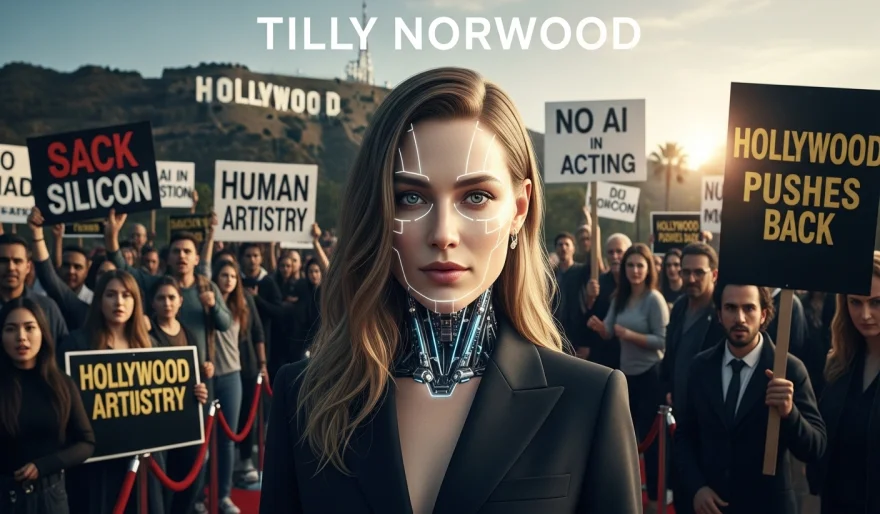Stay Ahead of the Curve
Latest AI news, expert analysis, bold opinions, and key trends — delivered to your inbox.
Hollywood Pushes Back: AI Actress Tilly Norwood Sparks Industry Backlash
2 min read Hollywood’s newest “star” isn’t human. Meet Tilly Norwood, the AI actress causing outrage in the film industry. Is this the future of cinema—or the moment Hollywood draws the line against synthetic talent? October 01, 2025 19:55
Hollywood has its first AI-generated actress — Tilly Norwood — and the reaction isn’t pretty. Instead of applause, she’s being met with resistance from actors’ unions, writers, and directors who see her as a direct threat to the craft.
Why it matters: Tilly isn’t just an experiment; she’s a test case for whether audiences and studios will accept AI as a replacement for human talent. If she works, she sets a precedent that could change the economics of film and TV. If she flops, it’s a signal that AI still can’t replicate human presence on screen.
The upside: studios could cut costs, avoid scheduling headaches, and give smaller filmmakers access to “digital stars” that rival Hollywood talent. In theory, AI actors could even localize films perfectly in multiple languages, expanding reach overnight.
The downside: this raises an identity crisis for the industry. Acting isn’t just lines delivered — it’s lived experience, nuance, and imperfection. Replacing that with algorithms risks making films feel hollow. It also threatens thousands of jobs in a business already struggling with streaming economics.
The hot take: Tilly Norwood is Hollywood’s AI moment of truth. If audiences embrace her, we could see the rise of fully synthetic celebrities. If they reject her, Tilly might end up remembered not as the future of cinema, but as the line Hollywood refused to cross.



















 AI Agents
AI Agents